Contributors’ Biographies
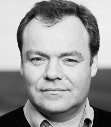
Guðmundur Ármann Pétursson, Solheimar, born in 1969. He is a graduate in Business Administration from Bifröst University, in Biodynamic Agriculture from Emerson College, and has an MSc in Architecture, Energy & Environmental Studies from the University of East London—Centre for Alternative Technology. He is a member of the Council in Grímsnes-og Grafningshreppur Municipality. He has been the director of Sólheimar since 2005, but with various other tasks in Solheimar since 1988.
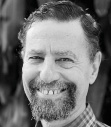
Graham Meltzer, Findhorn, has been a passionate advocate of communal living for over 50 years and lived for extended periods in several (including 3 years on a kibbutz, 8 years in an Australian hippy commune and, most recently, 11 years at Findhorn). His doctoral research focused on the environmental advantages of cohousing and he’s authored three books on intentional communities of different kinds. Graham currently works for the Findhorn Foundation as both a conference organizer and architectural designer.

MARTI is a writer, photographer, and social-environmental activist, who came to Auroville more than 25 years ago. Part of GEN since its formal inauguration, as a GEN Wisdom Keeper, chair of the GEN International Advisory Council, a GEN Elder and GEN delegate to the United Nations. She is co-founder of ‘Children and Trees’, creating environmental education materials; initiated ‘Greenland Spirit’, uniting Greenland artists concerned with identity and climate change; and is the author of This Earth of Ours.
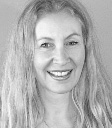
Macaco Tamerice (Martina Grosse Burlage), has lived in Damanhur since 1993, and is the coordinator of International Community Relations, and President of the non-profit Association Damanhur Education. She has been Vice President and President of GEN-Europe, and is on the Advisory Board of GEN-International. Macaco is an international speaker, facilitator and Gaia Education Educator. Fluent in five languages, trained in community building and conflict resolution during the last 23 years, Macaco has held many roles of social responsibility in Damanhur.
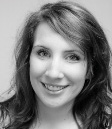
Christine Arlt works in SEKEM’s Public Relations Department, with SEKEM’s main activity fields (economy, ecology, cultural and sociaI life). SEKEM is a wonderful and unique place to work in and of course to visit!
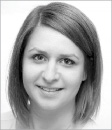
Christina Büns recently joined SEKEM’s Public Relations Department, and finds it inspiring to work and live with people who are passionate and dedicated to fostering SEKEM’s meaningful mission—day by day.
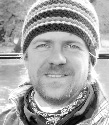
Andreas Kamp, 38, has lived with his family at Svanholm since 2013, working both in Svanholm’s administration and as an environmental sustainability assessment researcher. He is involved in a strategic approach to sustainable development at Svanholm based on The Natural Step framework, and the transition to a non-fossil fuel-based society.
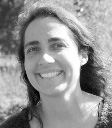
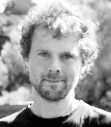
Mira Illeris and Esben Schultz moved to Svanholm in 2011, to establish a cluster of permaculture farms on Svanholm land. Qualified as organic farmers and permaculture designers, they also work as permaculture teachers, and publish the Nordic Permaculture Magazine.
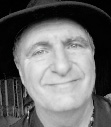
Giovanni Ciarlo is a sustainability consultant, musician and change agent. He served on the faculty of the Sustainable Businesses and Communities MA program at Goddard College, and presently works in the management of Gaia Education Design for Sustainability (GEDS). Past-president of the Board of GEN, and cofounder of the Ecoaldea Huehuecoyotl. His work emphasizes team building, deep democracy, social justice and environmental responsibility.

Ana Carolina Beer Simas works in sustainable education and collaborative communication, lecturing at the Federal University of Viçosa, Brazil. She works with Céu do Mapiá and communities in the Purus National Forest.
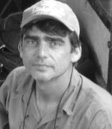
Felipe Nogueira Bello Simas has a background in agronomic engineering and doctorate in soil sciences. He teaches natural sciences at Universidade Federal de Viçosa, Brazil. They held the AmaGaia—Ecovillage Design Education in the Purus National Forest. They live in a small ecovillage project in Minas Gerais.
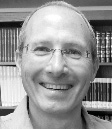
Alex Cicelsky is a founding member of Kibbutz Lotan and the Center for Creative Ecology (CfCE). He studied Soil and Water Science at the Hebrew University and Architectural Research in Energy Efficient Housing in Hot Climates at Ben Gurion University. He has designed many of the buildings and ecologically sound technologies in use in the CfCE as well as consulting in green design throughout Israel. Alex lectures worldwide on how ecovillages and environmental initiatives play a part in conflict resolution.
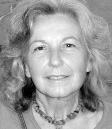
Lucilla Borio is a founding member and resident of Ecovillage Torri Superiore. In 1999/2004 she was the GEN-Europe secretary and CEO (Middle East and Africa), GEN-International Chairperson and UN delegate. She works with meeting facilitation, group dynamics and decision-making methods, offering support and consultation to consensus-oriented groups. She is the IIFAC (International Institute for Facilitation and Change) representative in Italy, and trainer of the CLIPS programme (Community Learning Incubator Programme for Sustainability). She speaks Italian, English, French and Russian.

Liz Walker lives with her husband at EcoVillage Ithaca, which she co-founded with a colleague in 1991. She has worked as executive director of its non-profit arm, Learn@EcoVillage, and as development manager for each of the three cohousing neighborhoods. She was on the founding board of Gaia Education and has written two books, EcoVillage at Ithaca: Pioneering a Sustainable Culture, (2005, New Society Publishers) and Choosing a Sustainable Future: Ideas and Inspiration from Ithaca, New York, (October, 2010, New Society)
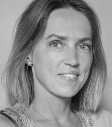
Ave Oit is the long-time chairwoman and the engine behind Lilleoru NGO, one of the original initiators of the Network of Estonian Eco-communities, and together with Ingvar Villido was one of the founders of Lilleoru. Conscious human development and sustainable lifestyle have been central to her activities ever since. She helped to establish the eco-store chain Biomarket in Estonia and is now a training manager there. Ave loves North American native culture and spirituality.
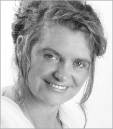
Leila Dregger, freelance journalist and teacher of peace journalism, was born in 1959. She has written the books Tamera: a Model for the Future, Frau-Sein allein genügt nicht—mein Weg als Aktivistin für Frieden und Liebe (Being a Woman is not Enough—my Path as Activist for Peace and Love), Desert or Paradise (authored with Sepp Holzer), and Ecovillage: 1001 Ways to Heal the Planet (with Kosha Joubert). She lives and works mainly in Tamera.
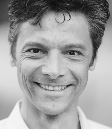
Martin Stengel, 50, is an appropriate technology engineer and a permaculture designer. He has co-designed and co-managed the ecovillage Sieben Linden, where he lives with his family (two children) in a self-built straw-bale house. He teaches Ecovillage and Permaculture Design and courses on community building. He has coached intentional communities and trains human resources managers in communication and coaching. He currently supports a British company in design for regenerative supply and resilient livelihoods in Asia and Africa.
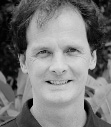
John Talbott has been the Project Director for the Narara Ecovillage since its founding in 2012. He was the Director of the Findhorn Ecovillage Project for more than 20 years, where he helped pioneer green building methods, ecological infrastructure and renewable energy systems. He is the author of Simply Build Green and lectures widely on the subject of building sustainable communities.
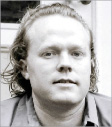
Simen Torp, 39, lives in Hurdal Ecovillage with his three children. As third generation eco-pioneers, growing up on an organic farm in Oslo, he learnt from the ‘school of life’. At age 16, Simen had a strong vision to create Norway’s first new ecovillage, Hurdal, and numerous ecological companies like Aktivhus (natural house company), Filago (ecovillage company), Green Sleep Norway (organic mattresses), Bioking Norway (organic food), Kjøkkenhagen (cafe, bakery and health food), Feel Real and Win-Win.
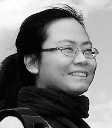
Fish Yu is a volunteer, and facilitator of Pachamama. She likes to live a simple life, with genuineness, kindness and beauty.

Fanzhi is a volunteer, and translator in Beijing Sustainable Development Committee. Nature is as wild as it is peaceful, and so is a human heart.

Woody Cui is a member of Hua Tao. Awakened by nature, he is going through a transformation process from being a professional timid ego to a happy co-creator with Mother Earth.
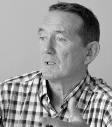
Michael Farrelly currently serves as Programme Manager at Tanzania Organic Agriculture Movement. With a masters degree in rural development and 14 years experience of development work across Africa, from building village water supplies to promoting ecological agriculture, he has designed several climate change adaptation projects. The acclaimed Chololo ecovillage project brought together seven diverse organizations to create a model of good practice in climate change adaptation in dryland Africa.
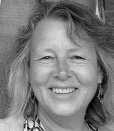
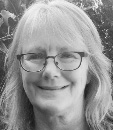
The Tasman Ecovillage chapter is a group effort, coordinated by Karen Weldrick and Jane Morton.
• Karen has lived at Tasman Ecovillage since its inception, and is a founding member of the residents’ association. Fascinated by life in co-operative culture, she is passionate about preserving and restoring natural values.
• Jane is a clinical psychologist campaigning for action on the climate emergency. She owns an apartment in the village and hopes to retire there after doing her bit to preserve a liveable planet.
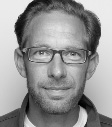
Mikkel Klinge was born in 1973, studied economics and philosophy, and has worked with sustainable transition. He has developed a monetary and tax reform which reduces the inherent growth imperative and inequality of our contemporary economic system, and makes sustainable transition of businesses possible on a national level. He has also developed an exchange and interest-free banking model. In the autumn of 2012 he got the idea for Karise Permatopia, and has since then been the main developer of the project.
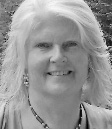
Frederica Miller, editor
To edit the book Hildur chose the Norwegian/English eco-architect Frederica Miller, Gaia-Oslo. Since the 1980s she has worked with the ecologically sound design of housing, and other projects such as urban sustainable villages and ecovillages. She is a qualified architect and permaculture designer who also works with social participation processes.